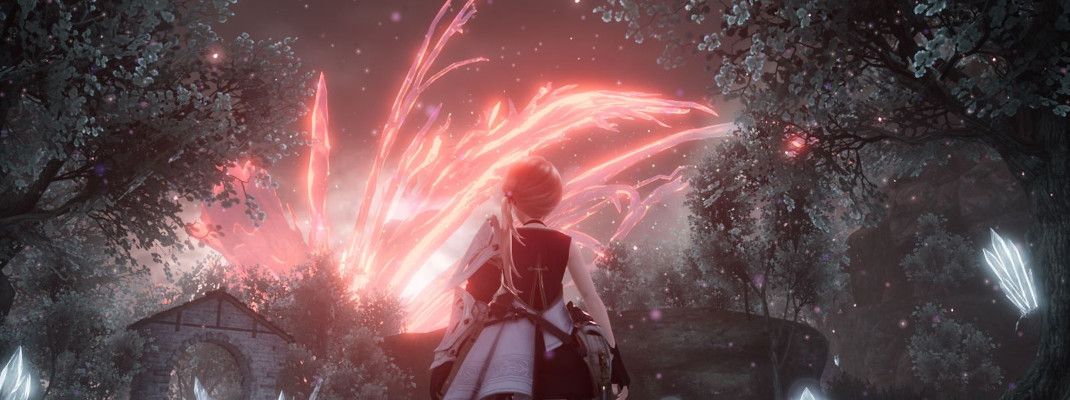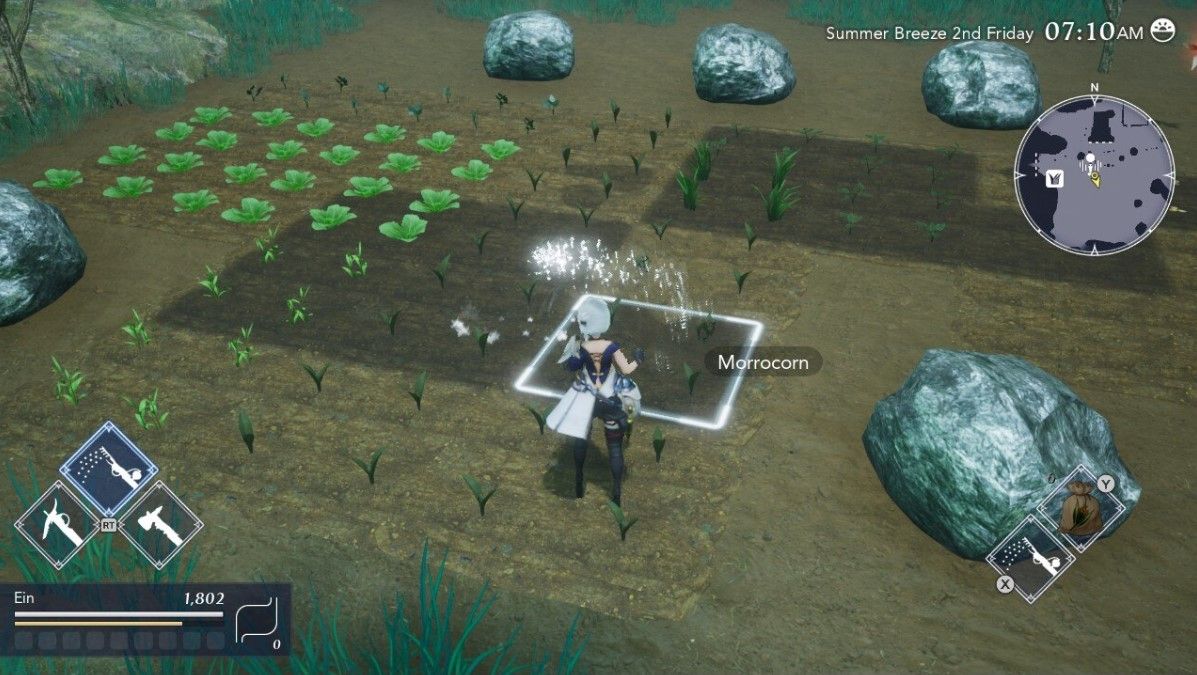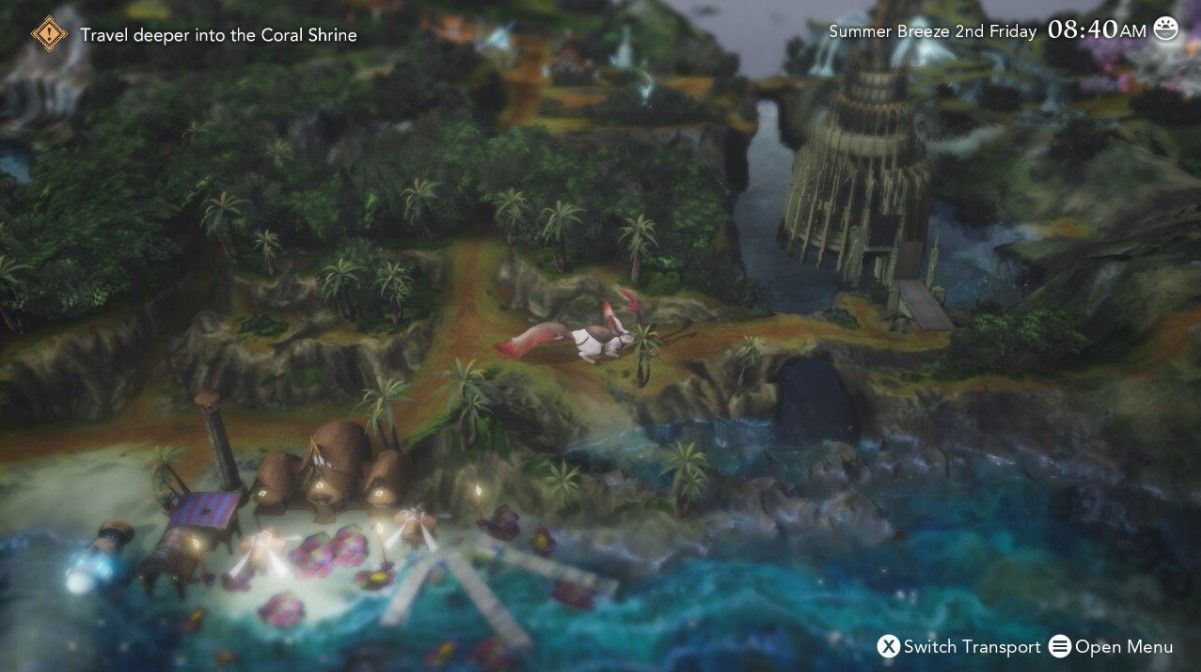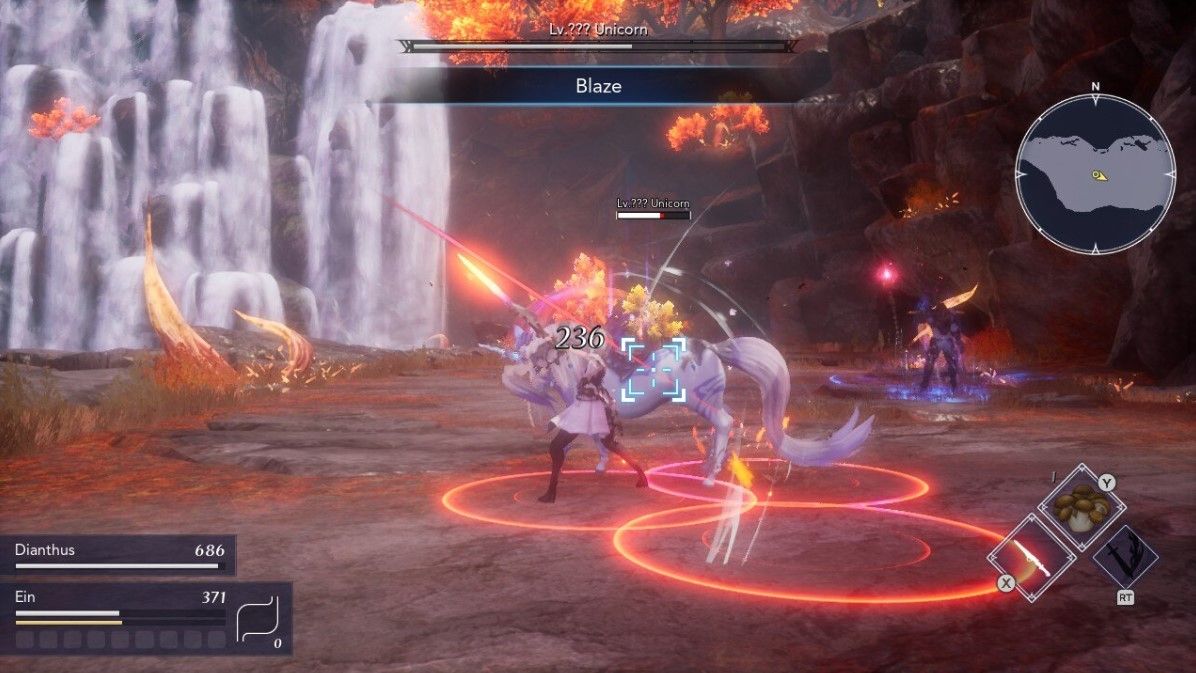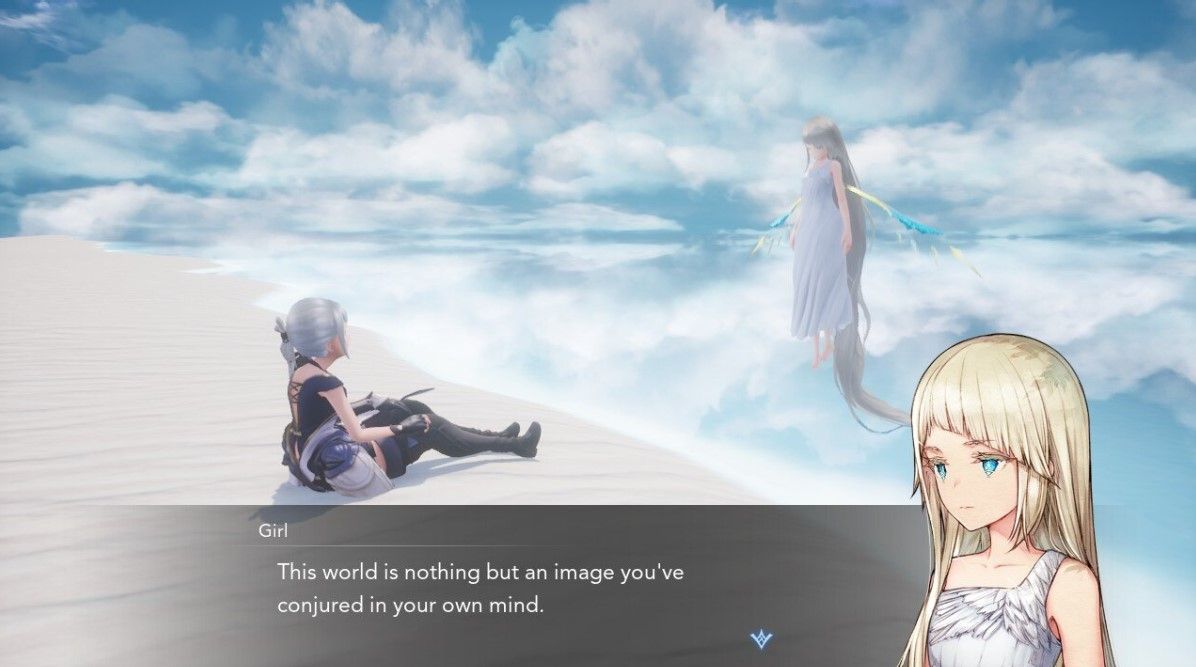When Harvestella was initially announced, it wasn't exactly clear what type of game they were going for, with early trailers showcasing elements of farming, life sim and JRPG games. The reason for this is this is a hybrid title that tries to mesh different styles together to create something unique. It's a lofty ambition and oftentimes these ambitious hybrids don't succeed at reaching new heights of excellence, but can still be worthwhile games. Harvestella falls into this category where it doesn't come together in a way that makes it extraordinary, but players with certain gaming preferences can still have a blast with it.
Harvestella takes place in a world where four crystals known as Seaslight govern the changing of seasons. Each season lasts thirty days with the exception of the Quietus. The Quietus occurs for one day between each season and it's also know as the Season of Death. During this time crops wither and die, and a similar fate happens to anyone who wishes to venture outside. The adventure starts during this event where the protagonist, who shall henceforth be referred to by her default name Ein, is found wandering about. As is apparently customary to do in the village of Lethe, she's given a house in which to recover in a nearby plot of land and farming fields in which to tend. Ein has lost her memory and is placed in a room with another woman, Aria, who's also suffering from memory gaps, but her story of how she got here is more outlandish. The story itself is rather unusual, and like the game seems to suffer from an identity crisis where the player splits their time between helping every citizen with mundane day-to-day issues while also dealing with potentially cataclysmic events on the horizon.
The first thing the player does is design their own character which they're given a fair amount of freedom with limited options. You can choose your pronouns: male, female and nonbinary. There are eight different character models to choose from, four appearing feminine and four more masculine, each of the four models identical save for skin tone. The player can select between two voices, and lastly change hair and eye color. Having options for character design is good, but the customization options are limited, making the variety of character design limited to the point where some people could criticize it for painting character diversity with only broad strokes. This is mentioned because this idea extends to many aspects of Harvestella's gameplay. It attempted to create a diverse and unique gaming experience by combining several different styles of gameplay, and while every aspect of it falls somewhere in the average-to-good range, none of the gameplay elements feel exceptional. There are a lot of good ideas here, but greater cultivation of them could have led to a greater overall game.
The passage of time in Harvestella is broken down into days and seasons. Ein wakes up at 6:00 am and needs to be back in bed by midnight. Failing to be back in bed at that time, whether due to the player refusing to honor the curfew or faces defeat at the hands of a monster, will result in waking up in bed at noon the next day with a letter and medical bill from Lethe's doctor. The activities throughout the day seem to be divided into three main categories: tending to the farm, interacting with villagers and exploring dungeons. While each day is on a timer and each season changes after thirty days, it doesn't seem like there's a finite end to things, so players can take all the time they want addressing the various quests and tackle the objectives in whatever order they choose.
Farming is a key aspect of Harvestella. With few exceptions Ein needs to tend to the farm daily, though how much attention it needs will vary. Farming itself is actually simple. Ein gets a plot of land that she can use a hoe to prepare to soil for planting and a hammer to get rid of those rocks that some jerk left in her field. After the land is tilled she plants and waters the crops. Crops are ready to harvest after a set number of days, but Ein needs to water all growing crops daily unless it happens to be raining. The crops can be used in recipes for sold for money to fund upgrades to the farm, new seeds and weapon upgrades. Eventually Ein will get farm animals, and as long they are cared for, they'll continue to provide additional items. Ein will eventually also get a workstation to construct items such as bombs or repair kits and a kitchen where she can make more elaborate food dishes from recipes.
For being an amnesiac outsider, the villagers take kindly to Ein wherever her travels take her. Like the typical strong silent JRPG protagonist, Ein can't help but get involved with so many villagers that require her meddling to improve their situation, whether this be part of the larger main story arc or one of the countless side quests. The villagers in Harvestella have no shortage of problems they need Ein to solve. Unlike many other games where these amount to fetch X item or kill Y number of monsters there's a lot of variety to these quests. They still end up being mostly simple endeavors, and there are a few that fall into the aforementioned categories. What helps make these side quests interesting is they often fall into multiple parts where the player ends up learning more about the personal history of the NPCs while witnessing minor character development. Traveling through the different locations and meeting NPCs at certain times ended up being one of the more engrossing pastimes.
The battle system in Harvestella is one of the weaker aspects. There isn't a designated block or dodge button which would have helped combat feel more modern and balanced. There are twelve different character classes that are gradually unlocked and up to three can be equipped for quick changes during battle. Each class has special attacks that use a cool down feature so you can spam enemies by cycling through the three equipped classes and their special moves. To replenish health in a fight, you need to eat. Eating takes a few seconds, so timing it properly is crucial. Ein also needs to eat to keep up her stamina as she can find herself unable to attack when that meter is empty. In an attempt to prevent players from staying alive by eating ridiculous amounts of food, there's a fullness meter that limits how much a player can eat, but using drinks to replenish health and stamina can circumvent this. The actual battle mechanics feel primitive like something from an early 2000's action game. The combat mechanics are serviceable, but despite the job-changing system still feels generic and uninspired, although having AI-controlled party members does help matters.
Probably the strangest thing about Harvestella is how much fun it was during the review. As stated in the above paragraphs, no single aspect of Harvestella's gameplay is spectacular. Many aspects of it can be described as mediocre, but somehow the total experience ends up being greater than the sum of its parts. While playing it nothing stood as being great, but the loop of tending to the farm, seeing what was going on in the village and going off to explore the monster infested areas was fun enough where a game session would be begin and last until the low battery indicator popped up on the Steam Deck. Harvestella does take a few hours to get interesting, but when it does it's a difficult game to put down in spite of its shortcomings. Perhaps the simplicity and accessibility contribute to this as although it's a long game, it feels like significant progress can be made in short amounts of time. Harvestella doesn't do anything particularly great, but it does everything well enough where it comes together in a way where players who enjoy a heavy emphasis on world building and story development can have a lot of fun with this title.
The citizens of Harvestella appear to be the middle ground between the more chibi Bravely Default characters and realistic character models. It's not the most technically-impressive approach to character designs, but does have a certain charm to it and fits the rest of game design well. Some of the environmental designs are gorgeous, especially with how colors change with the seasons. Contrary to many of the lackluster gameplay elements, the music in Harvestella comprises one of the best game soundtracks of the year. On PC there were no issues with framerate stability, and running it on Steam Deck was perfect with one exception. Occasionally if the Deck was put into sleep mode with the game running the audio would sound staticky and distorted for a few minutes after booting up. This didn't happen every time, but it was unpleasant when it did.
Closing Comments:
Harvestella attempts to create a unique gaming experience by combining farming and life sim elements with action RPG elements. The game suffers from an identity crisis both in regards to its narrative and gameplay. There's a great emphasis on interacting with villagers and helping them solve rather mundane problems with a story has more traditional JRPG leanings involving the saving the world from disaster. This correlates to the gameplay of balancing doing daily farm work, helping out with odd jobs around town while killing monsters and dealing with assorted events of an otherworldly nature. No element of Harvestella's gameplay is exceptional, but somehow all this imperfect and mismatched elements come together to in a way where the overall package ends up being greater than the sum of its parts. The farming system is simplistic and the combat is mediocre, but in spite of itself it's easy to get caught up in the lives of the villagers and fall into the trap of wanting to play for just "one more day" which turns into half a season.

